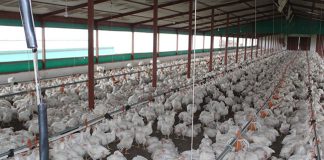According to Tshianeo Mathidi, Limpopo president of the National Emergent Red Meat Producers’ Organisation (Nerpo), over 2 000 cattle had already died due to the severe drought, described by some as the worst since 1983. Mathidi said the conditions had persisted throughout the festive season which meant the number kept rising. Affected areas included the Mopani and Vhembe districts bordering the Kruger National Park.
Mathidi said while threatening to push many emerging farmers out of production, the disaster could also result in soaring red meat prices. Gilbert Ngwaila, of Malamulela about 40km outside Giyani, said he had already lost 11 cattle from his herd of 55. “If we don’t get feed or rain in the next two months I’m afraid there won’t be a single cow left in this area,” said Ngwaila.
Mathidi said it did not look like the situation was about to change soon. He said some of the farmers may have to quit farming for good. Ngwaila said they had made applications through the department of agriculture, yet they had not received anything. Ngwaila said he had already exhausted his savings buying feed. “People are selling a bale of lucerne for over R130,” he said.
Mathidi said the problem was worsened by farmers who were holding on to their cattle and refused to de-stock. He said farmers should consider selling, especially older animals. Ngwaila said because the cattle were too thin, selling them was difficult as most buyers only offered between R300 and R700. Mathidi said farmers needed to organise themselves to make it easier to access information. “Government can easily organise workshops on how to deal with such disasters,” Mathidi said.
He said smallholder and subsistence farmers suffered because they did not have contingency plans. “Instead of prevention we only react to problems,” he said. Dr Theo de Jager, Agri SA deputy president, said it was a tragedy that farmers were losing their cattle. De Jager said although drought was to blame, part of the problem was a result of poor management and a lack of support from government.
“We have asked for a dam in the Litsitele since the 1970s, yet it has not been built despite it being approved years ago,” said De Jager. Having a dam in the area would help alleviate the problem. De Jager said in most communal areas, grazing management was non-existent. De Jager said because the area was a restricted Red Zone due to foot-and-mouth disease there were no commercial livestock farmers in the area but only commercial game farmers. “Game farmers were not as severely affected as cattle farmers,” said De Jager.
Kenny Mathivha of the Limpopo Department of Agriculture and Rural Development said the department was assessing the impact of the drought. Mathivha said they were still finalising a full report to quantify the scope of the damage. “We are working on how we can remedy the situation,” said Mathivha.










